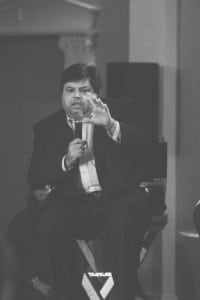 Mauril Belanger, a Liberal MP, recently proposed a bill to introduce a small change in the lyrics of the Canadian national anthem. It might be minor, but this change could have remarkably positive effects for women’s rights and Canadian nationalism.
Mauril Belanger, a Liberal MP, recently proposed a bill to introduce a small change in the lyrics of the Canadian national anthem. It might be minor, but this change could have remarkably positive effects for women’s rights and Canadian nationalism.
The lyrics to “O Canada” might be part of the innate knowledge of the average Canadian citizen, but does anyone ever stop to ponder the meaning of one phrase in particular? The current lyrics of “O Canada” are as follows, “O Canada, our home and native land, true patriot love, in all thy sons command.” Belanger, like Stephen Harper who once tried to introduce a similar bill, proposes that the lyrics be changed from “in all thy sons command” to “in all of us command” to be more inclusive of all genders.
When I think back to the times of singing “O Canada,” moments of celebration most commonly come to mind. I think back to watching a Canadian athlete winning a game or match and hearing the anthem played in their honor. What if the winning team is comprised of all women? We use the national anthem to celebrate some of our proudest moments, but what if they have been achieved by women, or by those who do not identify as male?
Canadian children often sing the national anthem in school. “O Canada” instills pride in our nation, yet the two words “thy sons” exclude a large chunk of our population. Do we really want to teach our children to ignore the achievements of roughly fifty percent of the Canadian population?
According to Jackson Doughart of the National Post, the changes proposed by Belanger are supposedly “nit-picking,” after which he proceeds to dramatically exclaim that we should just take out all of the lyrics to “O Canada” in order to make the anthem fully neutral.
We should never stop when it comes to change, especially if the changes allow for the full appreciation of the contributions given to us by the whole of Canada’s population. We have fought for much larger issues, such as voting rights and workplace equality – which remains a work in progress – so in comparison, the fight to change a couple of words seems to be within reason.
Why wouldn’t we fight for a change that could symbolize the unity of Canadians?
Traditionalists who prefer to keep the current lyrics argue that issues such as healthcare and tax reform are better-suited progressive thinking, but remain sentimental when questions are raised about national symbols.
The “Restore Our Anthem” movement, a campaign that supports the changing of lyrics of “O Canada,” notes that the proposed changes are not really changes at all, but rather they are a restoration of earlier lyrics.
Until 1908, “O Canada” was fully inclusive to all genders and stayed that way until 1913 when Robert Stanley Weir changed it to its current form. This change aimed to generate even greater support for all the men going off to war. Although this change may have suited that time period, since then women have integrated into the ranks of the Canadian armed forces; therefore, the artifice of “thy sons” no longer applies.
Unfortunately, despite Harper’s initial goal to change the lyrics, the conservative government has said that it will support changing the lyrics of the national anthem. Although this is a small bump in the road to restoring the meaning of our anthem, I think that even if the government does not change the lyrics of “O Canada,” the people will. The lyrics no longer fit with contemporary quintessential Canadian values of acceptance and equal opportunity cherished by many of us. As proud Canadians, we should fight to change our anthem into something in which we can truly take pride, and into something that celebrates the unity of Canadians.





